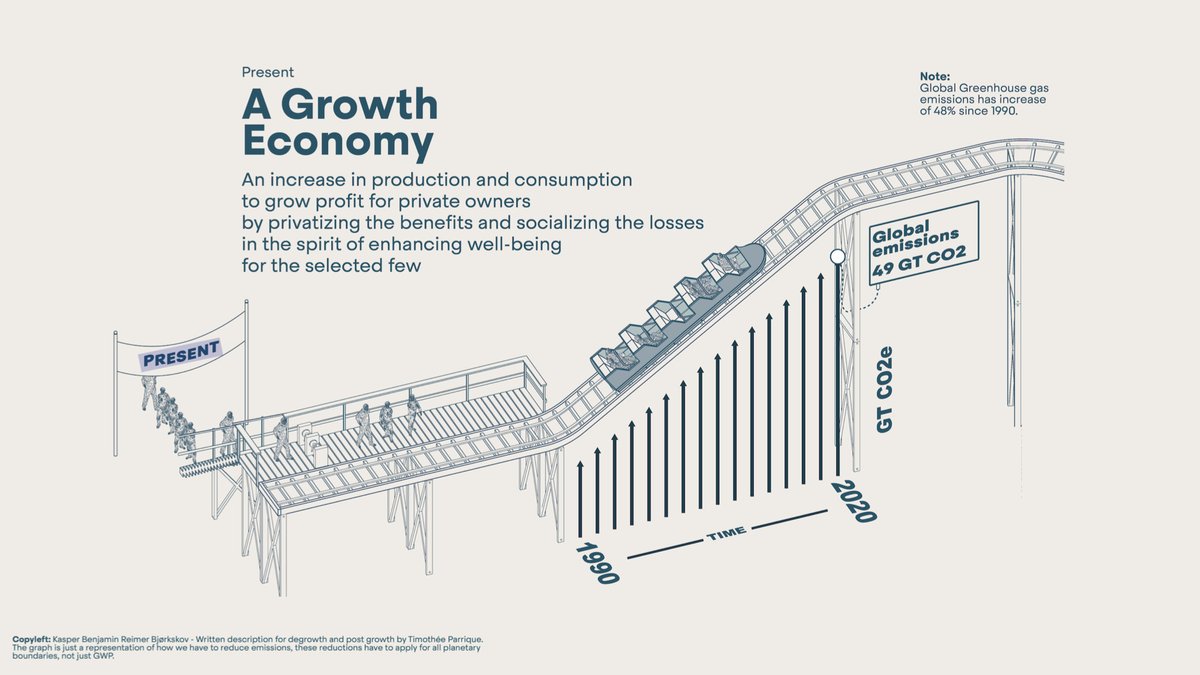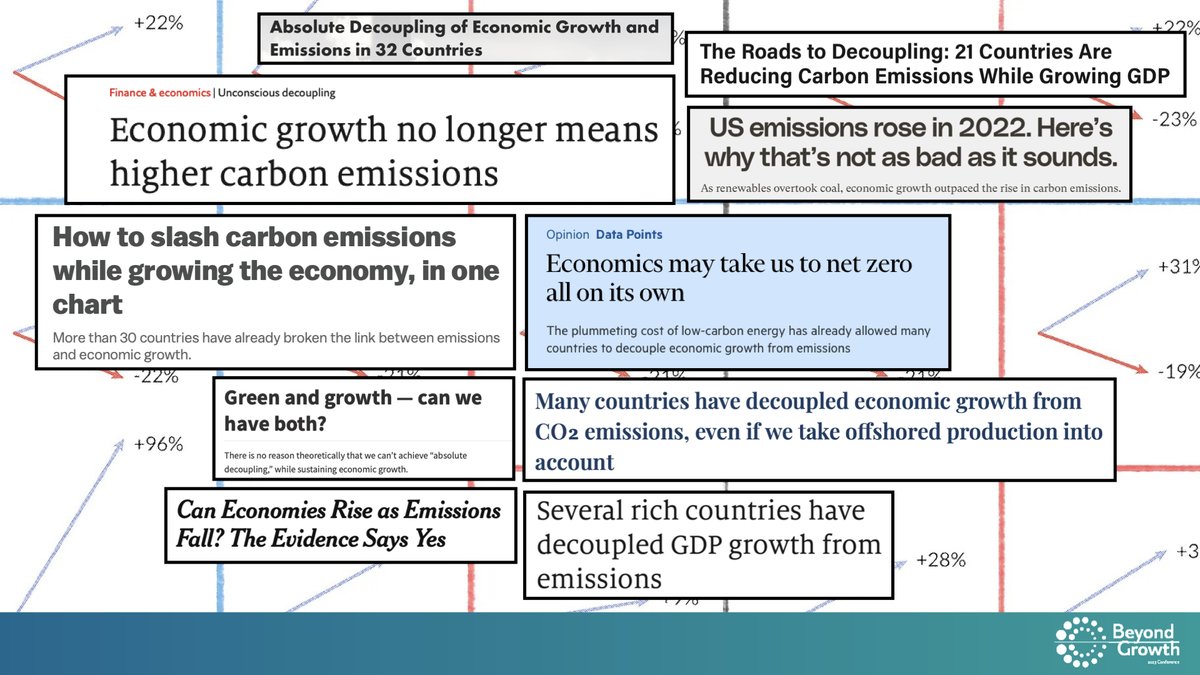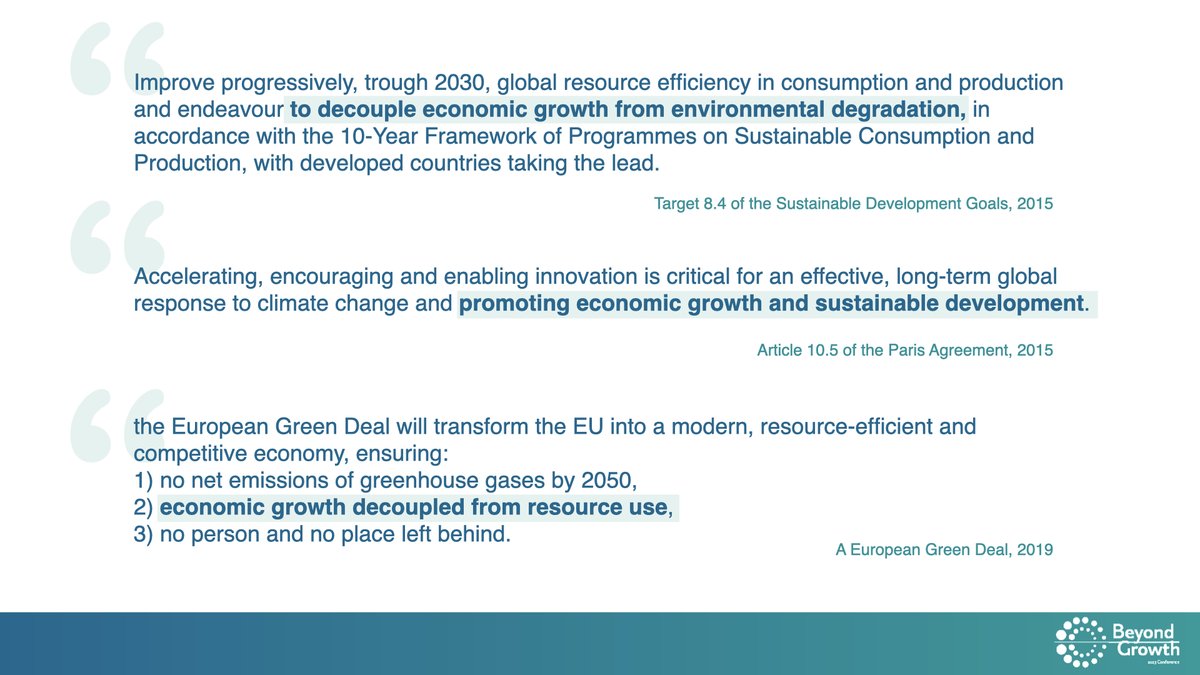An increase in production and consumption to grow profit for private owners by privatizing the benefits and socializing the losses in the spirit of enhancing well-being for the selected few. 

A reduction of production and consumption to lighten the ecological footprints, planned democratically in a spirit of social justice while improving well-being. 

A steady-state economy in harmony with nature
where decisions are taken together and where wealth is equitably shared in order to prosper without growth.
where decisions are taken together and where wealth is equitably shared in order to prosper without growth.

Thanks to Kasper Benjamin Reimer Bjørkskov for this magnificent illustration!
• • •
Missing some Tweet in this thread? You can try to
force a refresh


















